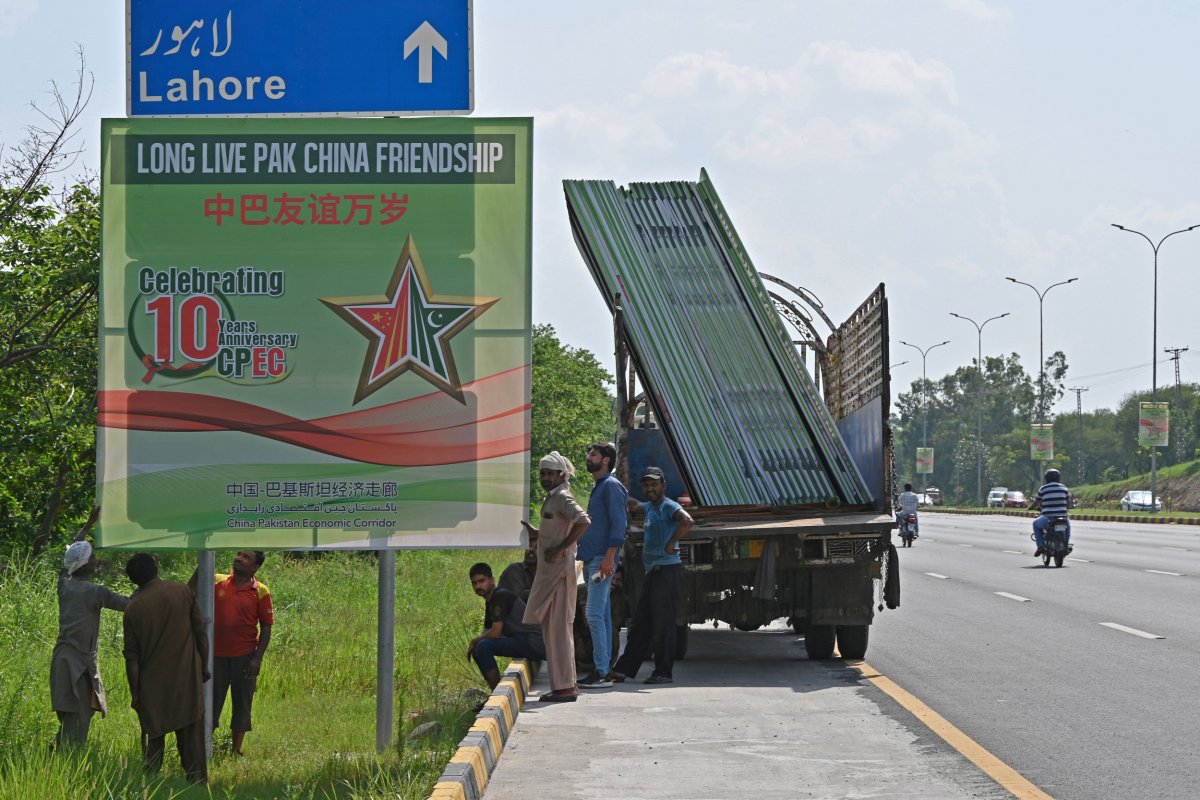As China celebrates the 10th anniversary of its Belt and Road Initiative (BRI) with great fanfare this week, the life expectancy of President Xi Jinping's signature infrastructure program has been called into question amid a drop in investments and slowing Chinese economy.
Since its conception in 2013, the BRI has seen $1 trillion worth of investments poured into projects in nearly every region of the globe. It was meant to place China firmly on center stage as an alternative financier—and therefore power center—to United States-led institutions.
One decade and a pandemic later, BRI investment has both slowed and narrowed in scope. The program has been bedeviled by haphazard project rollouts, corruption, and the carbon footprint of some of its headline-making mega projects.
Accusations of "debt trap diplomacy," or offering loans China knows a country cannot repay in order to later secure a foothold or greater political influence over that country, have also stuck, though many analysts believe this was more due to poor planning than to geopolitical machinations.
Sri Lanka is often cited as an example of this. Unable to pay off its debts, its government in 2017 privatized and leased its second-largest port to a Chinese company for 99 years.
This baggage has likely contributed to the recent pivot by China toward "small but beautiful" investments under the BRI umbrella.
A study published in July by Shanghai's Fudan University found that of the over 150 countries that have entered into BRI partnerships to date, there had been a 100 percent engagement with 26, though it is rising in certain regions like Sub-Saharan Africa.
Infrastructure is also skewing greener, with the first half of this year seeing more eco-friendly than in any six-month period since the initiative was launched.
China's economic engine in 2013 was fueled by 7.7 percent growth, while this year, the country is likely to just scrape 5 percent. But this is just one of the factors influencing the BRI's trajectory.
"After a decade-long hectic expansion, the pace of the BRI project for the next ten years will most likely be slower, under the combined weight of a slower Chinese economy, narrower international financial surpluses, greater pressures to better manage investment risks, and increased demand to meet environmental challenges," Guonan Ma, senior fellow on Chinese Economy at the Asia Society Policy Institute, told Newsweek.
Lower-income BRI partnered countries' struggles to make payments, as well as Beijing's aggressive deleveraging efforts in the wake of China's ongoing property crisis. have made China's banks more risk averse. And "with China's economic stagnation, there is also less room for Chinese policy banks to squander Chinese people's savings," Emily Jin, research associate at the Center for a New American Security, told Newsweek.

Yet the drop in overall Chinese investment infrastucture may not be as precipitous as it appears.
"It's worth noting that while development finance may be declining from two out of the three policy banks in China, China's foreign direct investment into the developing world remains robust," Jin said.
She cited the American Enterprise Institute's statistics showing more than 80 percent of Chinese investment funded projects developing countries, especially in the energy, transportation, metals, real estate and agriculture sectors.
China's commercial banks, which have not always been included in reviews of BRI investment, are playing a more significant role in emerging markets lending.
Since the BRI's conception, "lending for BRI projects has plummeted, debt for borrowing countries has skyrocketed, and projects have been abruptly halted," Rep. Raja Krishnamoorthi (D-IL) said in a press release Tuesday.
Krishnamoorthi, a Democrat who sits on the House Select Committee on the Strategic Competition Between the United States and the Chinese Communist Party, called on Washington to spearhead sustainable development for developing countries and coordinate with lenders on terms that "do not leave these countries wallowing in debt."
They "deserve an alternative to the troubled policies of the CCP," he said.
At the G20 in New Delhi last month, U.S. President Joe Biden and Indian Prime Minister Narendra Modi held an event touting a pair of initiatives believed to be aimed at countering the BRI: the G7-conceived Partnership for Global Infrastructure and Investment and the India-Middle East-Europe Economic Corridor.
Uncommon Knowledge
Newsweek is committed to challenging conventional wisdom and finding connections in the search for common ground.
Newsweek is committed to challenging conventional wisdom and finding connections in the search for common ground.
About the writer
Micah McCartney is a reporter for Newsweek based in Taipei, Taiwan. He covers U.S.-China relations, East Asian and Southeast Asian ... Read more





